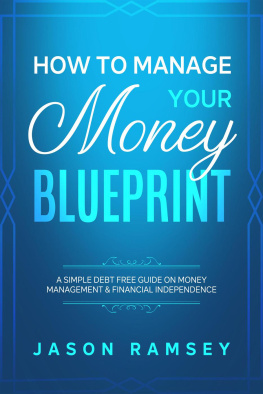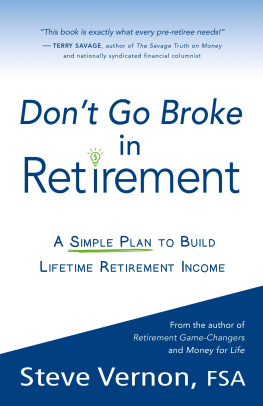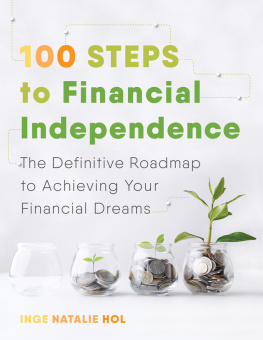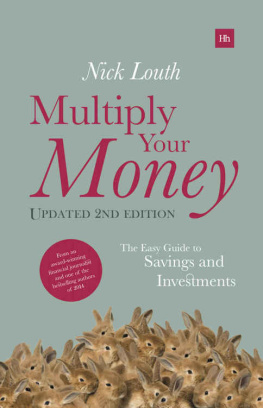2010 Jacob Lund Fisker. All rights reserved.Printed in the United States of AmericaFirst edition/KindleCover design by Ann Beaver.Proofreading by Averbach Transcription.
No part of this book may be reproduced or transmitted in any form or by any means, graphic, electronic, or mechanical, including photocopying, scanning, recording, taping, or by any information storage or retrieval system, without the written permission of the author and publisher.
Scanning, uploading, and distributing this book via the internet or by other means without the permission of the author and publisher is illegal. Please respect the author's rights and do not participate in or encourage piracy of copyrighted material.
Every reasonable attempt has been made to identify owners of copyright. All trademarks that appear or are otherwise referred to in this book are the property of their respective owners. The author and the publisher have no financial relationships or any relationships with any trademark owners, manufacturers, or companies, nor have the content of this book been endorsed or confirmed by any such mentioned in the text. Omissions and errors will be corrected in subsequent editions.
The information in this book is distributed on an "As Is" basis, without warranty of any kind. While every effort has been made in the preparation of the book to ensure the accuracy of the contents, errors and omissions can occur. This book is not completely comprehensive and some readers may want to consult additional books for advice. This book does not contain professional advice. For professional advice, consult a professional. Neither the author nor the publisher shall have any liability to any person or entity with respect to any loss or damage caused or alleged to be caused directly or indirectly in connection with this book.
Much thanks goes to countless readers on earlyretirementextreme.com for their insights and comments on the blog. Special thanks for early reading and editing goes to Erica and Zev.
Contents
About the book
I think of this book first and foremost as a philosophy of the words used. The lack of concrete specifics is intentional because they won't pertain to very many people. The approach is deliberately open-ended to make the concepts applicable to as many different situations as possible. This may also mean that the concepts, which aim to create consilient and resilient structures, are applicable to other kinds of organizing like policy-making or business management.
This book isn't a "how-to" manual to a specific lifestyle, but a "how-to" manual for "how-to" manuals. The intention is for each person to create his own strategy. In this sense, this book isn't a travel journal, nor is it a set of map directions; it's a book that teaches you to become a navigator. I used the principles in this book to reduce my expenses to a quarter of the average person and become financially independent in five years. While my story may be entertaining or inspiring, it may not be directly useful towards reaching a similar goal. Similarly, while initially motivating due to their actionable form, a set of map directions would fail the first time one reaches a crossroads not on the map. This would end the journey if the "pilot" has no navigational skills. I have therefore written the book as a textbook. Learning how to become financially independent requires study. This requires effort and is not easy--if it was truly easy, everybody would be doing it--but it's no more difficult than getting a college education or becoming a skilled tradesman in your respective field. What I'll describe here is another kind of life, the life of an independently wealthy and widely skilled person--a modern Renaissance man.
A note about the difficulty level
This isn't a book for beginners. It's not a book one can pick up, read, and proceed to become financially independent just as reading a textbook about physics won't turn a person into a physicist. This only happens when the concepts are constantly applied and one starts "thinking like a physicist." Things are similar for a person pursuing financial independence.
This is a book which I think can be read at several different levels. The reason for different levels is that people change as they learn. Depending on where you are, the book will relate to you in different ways. This is good, because those who evolve will become different people, eventually. What used to seem like a sacrifice will seem natural, and what used to seem natural will come to be seen as a sacrifice. What used to be a collection of techniques will become a general principle. What used to feel challenging will now feel easy.
A note about getting started
You don't need to learn everything before getting started. After all, you can drive a car without knowing how the engine works. In fact, you can drive several different kinds of cars. This is because most cars handle the same. However, to stay with the analogy, the same car can be driven with very different gas mileages. It may be listed as 33mpg, but good technique can double that number and poor technique can cut it in half. A trivial technique is to reduce speed by 5mph, which will simply bring most drivers back to the speed limit. Similarly, if living is thought of as driving a particular kind of "vehicle," there are techniques in this book which can be applied without understanding exactly why they work. Understanding why they work will subsequently allow one to tweak and improve them.
A note about references
This is not an academic work. I have resisted the temptation to follow the medievally inspired academic I find that showing the derivation from basic principles is more useful for application. Instead of references, I have provided a bibliography of books in the appendix of this book, each of which will add to the subject.
A note about geography
While this book is somewhat US-centric in its examples, the methods should work in any developed country with a market economy. Retirement plans have different names from country to country, but every country offers very similar plans to its citizens. In some countries health care is paid through taxes, and in other countries it's paid out of pocket. In any case the prices for goods and services are similar in developed countries so the strategies in this book will work, even if technical details differ.
A note about originality
Feynman once remarked that the best way to find new insights into a problem was to step out of the box, ignore previous publications, and come to your own conclusions. With such an approach, it often happens that a concept which is initially considered to be novel turns out to have been discovered already. In fact, many of the ideas in this book go back decades and even centuries.
To give an example, when I was a teenager, I wasted a lot of my time playing computer games. One genre I particularly enjoyed was real-time strategy: games like Dune , Warcraft I and II , and Command and Conquer . In these games you build up forces comprised of individual units (tanks, warriors, etc.). When these units fight, each fights at full strength until it's destroyed or killed. Since the rate of attrition depends on the number of weapons firing or striking, the optimal strategy in a battle is therefore for all your units to attack a single individual enemy at a time to reduce the number of enemies firing or striking as fast as possible. A great many players have independently "discovered" this strategy, called Lanchester's Square Law Analogously, I'm sure that Lanchester wasn't the first person to think about how to most effectively direct the fire of siege trebuchets.
A note about completeness
There's always the temptation to make a book complete. However, a line must be drawn lest the book grow to the size of a minor encyclopedia. After all, the quantity of knowledge that must be mastered is not trivial, and thus I can't describe everything. However, I hope I've used enough relevant keywords to allow a quick search on the Internet for more information. In all cases I've striven to use standard words rather than jargon.
Next page






